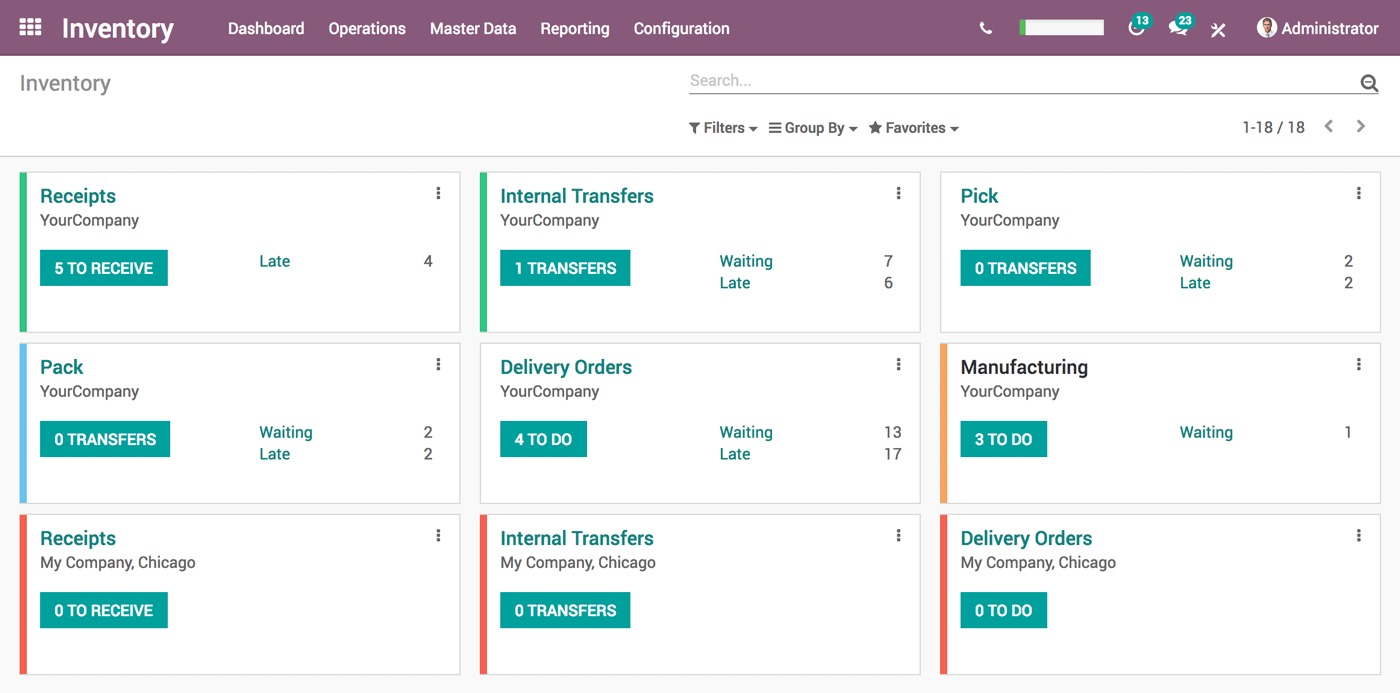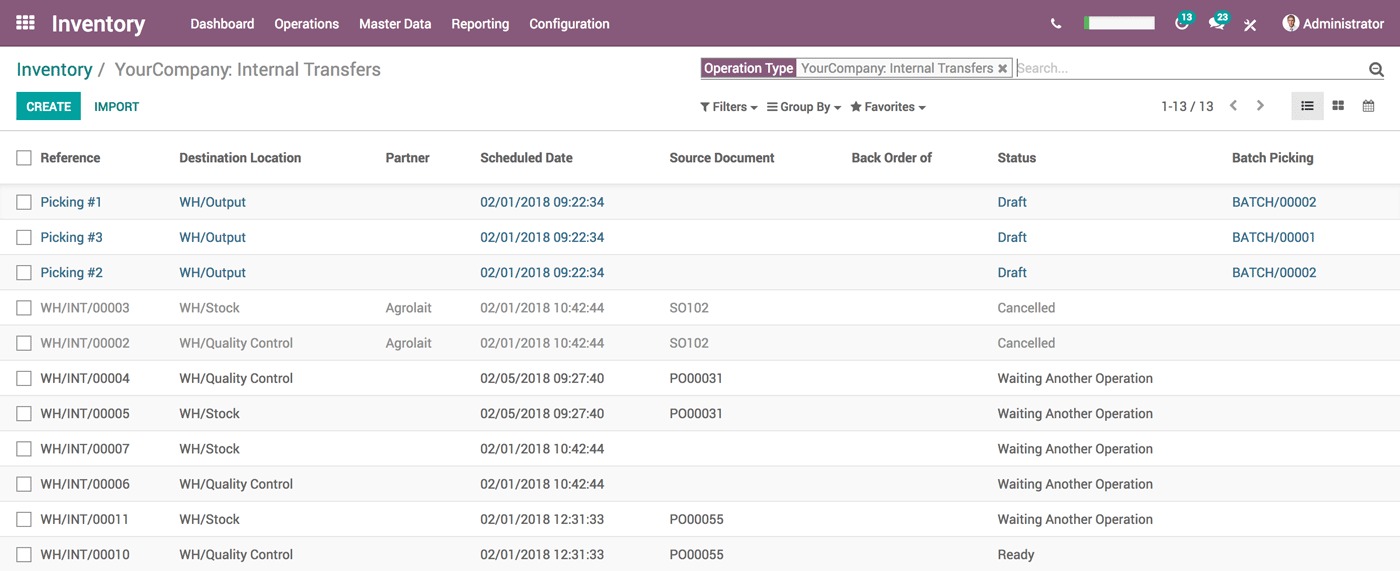TABLE OF CONTENT
What is Inventory Management Open Source?
Advantages of Inventory Management Open source
Disadvantages of Inventory Management Open source
Top Open Source Inventory Management Software Options
Open Source Warehouse Management
Conclusion
What is Inventory Management Open Source?

Inventory management is the process of how a company constructs and supervises their inventory. Inventory levels, orders, sales, and deliveries must all be tracked. A company that practices effective inventory management can satisfy customer demand without overstocking or understocking.
Software being developed and distributed under an open-source license is assigned as Inventory management open-source one.
Open-source software is available for anyone to run, apply, and utilize on the house. This means an open-source inventory management software could be operated and personalized to meet businesses’ needs and wants by paying no extra fees.
One typical example of an open-source inventory management software, Odoo Inventory Management Software, gives businesses a chance to experience a cost-effective and customizable inventory management program.
Odoo is a prior option for all sizes of businesses as it provides great features and functions such as reports and analytics of inventory tracking, barcode scanning, sales and purchase behavior.
Moreover, Odoo also offers extensive warehouse management capabilities, making it an accomplished preferred for organizations and businesses that demand multiple warehouses management.
Advantages of Inventory Management Open source
Cost savings
Cost savings is one of the most essential pros of open-source inventory management software. Licensing fees are not required to pay as businesses could use the proprietary software with a substantial expense.
Customization
To specifically meet businesses’ needs and wants, open-source software is flexible in customizing as it advances fertility and effectiveness. In addition, functions and features which are not accessible through proprietary software could be easily added later.
Flexibility
Open-source software is frequently more adaptable than software which is proprietary.
It could be modified and integrated with other applications on the purpose of serving businesses’ commands.
Scalability
To accommodate the growth of businesses, open-source software can be easily scaled. More functions and features could be added to meet the change of businesses’ needs. This could help them proceed with their demand.
Disadvantages of Inventory Management Open source
Technical expertise
Technical expertise is compulsory to set up and upkeep for an open-source software. This could be difficult for businesses that lack potential IT employees.
Limited customer support
Compared to proprietary software, open-source one may limit in client service. This could be one of the important concerts among several businesses.
Integration challenges
Compared to proprietary software, open-source one may have more challenges to integrate with other business applications.
Top Open Source Inventory Management Software Options
Some of the most renowned open-source inventory management software choices that is available are:
- Odoo
- ERPNext
- inFlow Inventory
- Snipe-IT
- Fishbowl Inventory
Of all the above, Odoo is considered to be the most versatile and rich in features. Odoo Inventory Management Software contains various features, such as reports and analytics of inventory tracking, barcode scanning, sales and purchase behavior.
Odoo Inventory Management System
Odoo supplies a complete chain of business applications, including inventory management, CRM, accounting, etc… The Odoo Inventory Management System is constructed to help all sizes of businesses manage their inventory with efficiency.
With Odoo, companies can track inventory levels in real-time, set reordering rules, manage stock moves and transfers, and generate detailed reports. Odoo also offers a range of add-ons and integrations, such as barcode scanners and shipping software.
ERPNext
ERPNext is an open-source ERP software that includes an inventory management module.
Along with several features such as stock management, barcode scanning, purchase and sales management, ERPNext is recommended for small and medium-sized businesses.
inFlow Inventory
inFlow Inventory, open-source inventory management software for Windows, Mac, and Linux, is available on the house. Along with several features such as inventory tracking, reporting and analytics, purchase and sales management, inFlow Inventory is recommended for small businesses.
Snipe-IT
With an inventory management module, Snipe-IT is an open-source IT asset management software. Along with several features such as inventory tracking, reporting and analytics, purchase and sales management, Snipe-IT is recommended for businesses that lack IT asset management.
Fishbowl Inventory
As designed for small and medium-sized businesses, Fishbowl Inventory is also an open-source inventory management software. Along with several features such as inventory tracking, reporting and analytics, purchase and sales management, Fishbowl Inventory is recommended for businesses that lack an easily comprehensive inventory management.
Open Source Warehouse Management

Open-source warehouse management software is a branch of inventory management software dedicated to overseeing warehouses. Open-source warehouse management software options include:
- Odoo
- OpenBoxes
- IceWarp
- Openbravo
- Warehouse Management System (WMS)
Every option has its own unique features and advantages, and before selecting a particular system, businesses should assess their needs with carefulness. For instance, as one of its many modules, Odoo is a comprehensive enterprise resource planning (ERP) system that offers warehouse management.
On the other hand, OpenBoxes, is the only warehouse management system that is highly recommended for small to medium-sized businesses thanks to its customization.
Openbravo is an ERP system with developed warehouse management functions, whereas, IceWarp is a cloud-based WMS that provides real-time tracking and management of inventory
Regardless of many choices among open-source warehouse management systems, lots of excellent practices are implemented to ensure success. These include proper employee training programs, inventory levels and data accuracy monitor regularly, and periodically examining and improving warehouse procedures.
Warehouse operations can be significantly grown and gain a competitive benefit only when businesses apply the proper strategies and right practices in the area.
In conclusion, open-source warehouse management is a trending option for businesses, especially for the ones who are desired to improve their inventory and logistics processes.
With budget savings, customized flexibility, and a community-driven development structure, open-source software offers several advantages over proprietary solutions.
Businesses could control their warehouse operations and build more successful brand positions in the economy industry, by evaluating their needs carefully and picking the most suitable system.
Conclusion
One typical example of an open-source inventory management software, Odoo Inventory Management Software, gives businesses a chance to experience a cost-effective and customizable inventory management program. Odoo is a prior option for all sizes of businesses as it provides great features and functions such as reports and analytics of inventory tracking, barcode scanning, sales and purchase behavior. Moreover, Odoo also offers extensive warehouse management capabilities, making it an accomplished preferred for organizations and businesses that demand multiple warehouses management. While open-source software has limits in technical expertise and client services; cost savings, customization, flexibility, and scalability make it a great recommendation for businesses to manage their inventory more effectively. As an Odoo Gold partner, we are ready to assist you in using Odoo successfully. Contact us immediately for more details!



